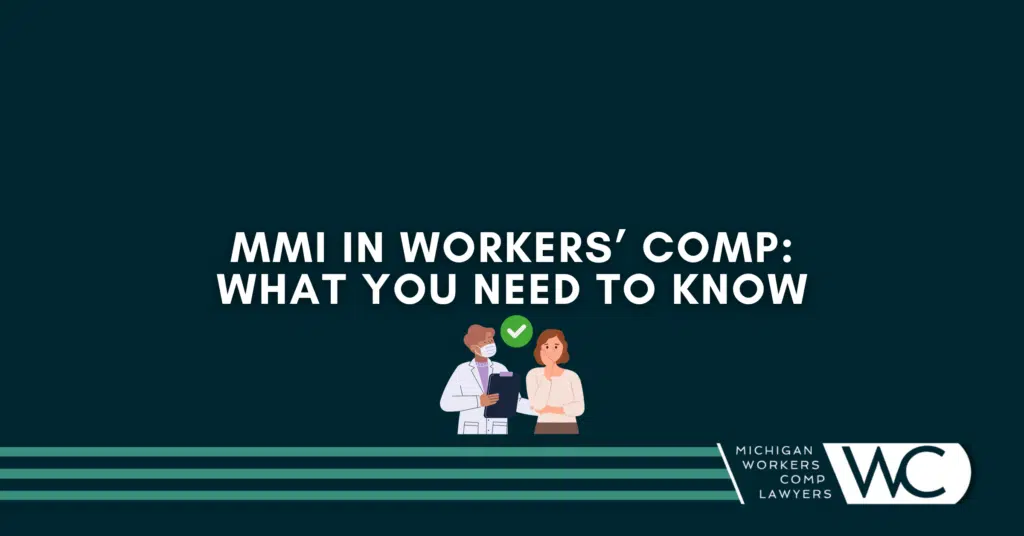
Michigan work injury lawyer explains how wage loss benefits continue even after reaching maximum medical improvement (MMI).
Workers’ comp is a safety net that protects employees who are hurt on-the-job. It covers medical bills and lost wages. Michigan is considered a “wage-loss” state so workers’ comp benefits should not stop just because a person reaches maximum medical improvement (MMI). Here are some rules that everyone should know about when navigating workplace injury claims.
Many of our clients worry that reaching maximum medical improvement will result in an end to their work injury benefits. Does their employer now have to offer a job within permanent work restrictions? What about lost wages if a person is still unable to work? Does this mean a person gets an automatic payout?
What is MMI in workers’ comp?
Maximum medical improvement (MMI) is a workers’ comp term that doctors use when a patient has reached a treatment plateau. This means no change is expected despite additional medical intervention. It does not mean that medical treatment stops or that a person cannot see a doctor.
Nothing but an excuse for insurance companies to start playing games with people’s lives. Watch out for so-called “independent” doctors who find a person at MMI and recommend no additional medical treatment. These physicians are paid for by the insurance company and usually toe the company line. It should be up to a treating doctor to say whether a person has reached a healing plateau based upon their own professional judgment.
What happens when you reach MMI in workers’ comp?
Disabled employees who reach Maximum medical improvement (MMI) can find their workers’ comp benefits in jeopardy. Insurance companies use “independent” doctors to establish restrictions. This can be used to cut-off or reduce what is paid. We recommend speaking with an attorney at this stage of the claim.
Reaching maximum medical improvement does not mean that an employee can return to their job. Medical treatment options might be exhausted but lost wages should continue being paid if a person is unable to work. Benefits do not end when a disabled employee reaches MMI.
What should your next steps be if you reach maximum medical improvement?
Discuss work restrictions with a treating doctor and come up with a vocational plan. Many of our clients settle their work injury claims for a lump sum cash payment. This allows a person freedom to finish medical treatment and vocational rehabilitation on their own terms. Watch out for insurance companies who make low-ball settlement offers using biased medical reports and phony labor market surveys.
Need help? Contact our workman’s comp lawyers for a free consultation
To speak with an experienced attorney about MMI and your workers’ comp claim, call us now or fill out our contact form for a free consultation. There is absolutely no cost or obligation. We’re here for you.
Our attorneys have been exclusively helping injured workers and family members who have lost a loved one on the job in Michigan for more than 40 years and can help you better understand Michigan workman’s comp laws and explain what happens if you or a loved one has been hurt on the job. To see what our own clients have to say about the caring, compassion, and communication they received from us, you can read in their own words about their experience here on our testimonials page from clients we have helped.
Michigan Workers Comp Lawyers never charges a fee to evaluate a potential case. Our law firm has represented injured and disabled workers exclusively for more than 40 years. Call (844) 316-8033 for a free consultation today.
Related information:

